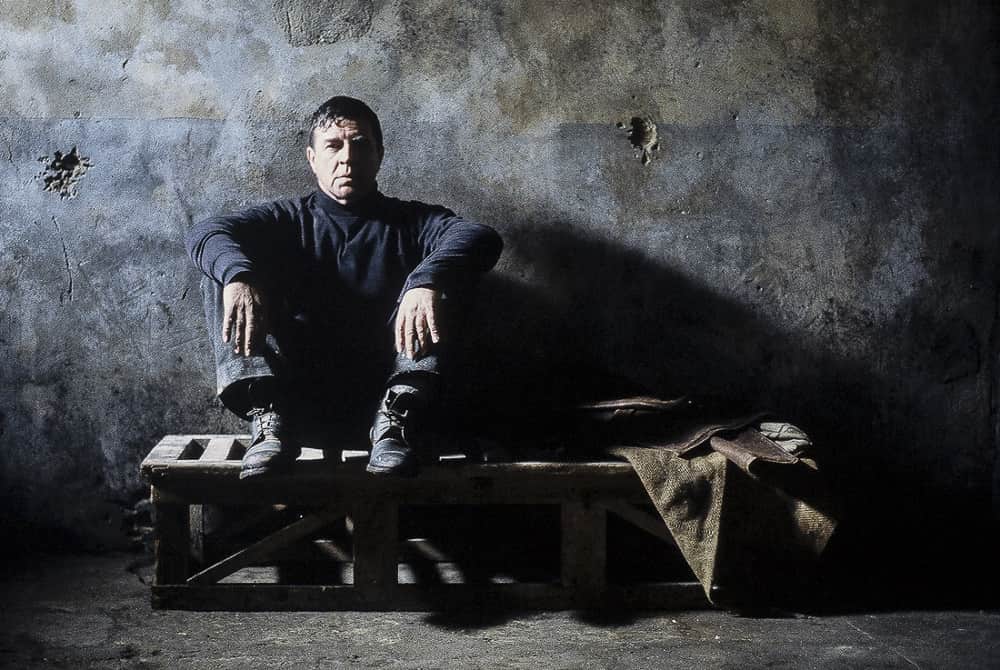Shuttlecock, it says on the IMDB, with the year 2020 in a bracket. Strange, that guy looks like Alan Bates, I thought to myself as the grainy face of a middle-aged man appeared on the screen. Since Bates died in 2003 this seemed unlikely. Up come the opening credits and there is the name Alan Bates at the top of the list. What am I watching?
A bit more digging and I see there’s another film called Shuttlecock on the IMDB, from 1991, also directed by Andrew Piddington and starring… Alan Bates. A bit more digging still and (thank you Wikipedia, and, yes, I have sent some money) a picture starts to emerge, of a thriller directed in 1991 which was beset by financial and other problems. “The original film was never finished, really,” Piddington told the New York Times in a 2014 interview. Shuttlecock wasn’t very well received.
One final mystery I have only just solved by reading the New York Times piece the quote came from is precisely when Piddington went back to the film and had another go at it. End credits suggest 2014 (they also suggest another title for the film, Sins of a Father), which agrees with the NYT date, even though the IMDB is saying 2020. At the best of times films and the date of their release is a foggy area.
Anyhow, here we are in 2020 with what the IMDB are now calling the “director’s cut”, though actually this Shuttlecock is more than that. Piddington has re-assembled some of his cast, decades on, and has constructed a framing device bookending the film – at the funeral of the Second World War hero Major James Prentis (Bates), John (Lambert Wilson), the plodding son he never quite rated, and doted-on grandson Martin (David Oakes) confront the rift in their relationship and the truth about the man they’ve come to bury.
Back we go in time – to original material shot in the 1990s – and in roughly 1970 Major Prentis has decided to up sticks and move to Portugal under the one-party rule of dictator Salazar, last of the 1930s gang of fascists which included Hitler, Mussolini and Franco. This is an odd decision for a man who’d proved his mettle behind enemy lines in Nazi Germany. Doubly so, since Major Prentis has just published an acclaimed memoir about his war exploits, after much prompting, and is the toast of London.
There, in sunny Portugal, the major has a massive mental breakdown and is rendered mute. His son John (Wilson, looking much younger in this material, because he is/was) arrives with young son Martin (played in these sequences by Gregory Chisholm, who could not be located for the reshoots) to find out what’s wrong with the Major.
What then plays out is something along the lines of a Stephen Poliakoff drama, an excavation of the past see-sawing between the the wartime exploits of Shuttlecock (the Major’s code name), the late 60s/early 70s of the Major’s mental collapse in Portugal and the present day, where John and Martin are trying to get both the past and their current relationship straight.
Also, Poliakoff style, the drama is really concerned with psychological damage – the sins of the father – echoing down through time. The Major’s neglect of his son has had an effect on John and his grandson and also, it’s suggested, might have contributed to the end of John’s marriage.
But never mind all that, is the film any good? Yes it is. Piddington has successfully pulled the 1991 film out of the fire and by adding 20-odd minutes to it and re-editing has shaped a successful psychological drama that does justice to Graham Swift’s original novel.
For something interested in psychological developments it’s got big visual ambitions. So many cavernous, lushly shot spaces – the Liberal Club in London, the psychiatric hospital in Portugal to name just two, and an eye for a gorgeous old Mercedes winding along a night-time city street in Portugal. I’m also guessing that modern tech has allowed for some cleaning and regrading of the original material, to match it with the newer stuff. However it’s been done, it feels like an up-to-the-minute film, which makes Bates’s presence feel like even more of a bonus, if you’re a fan.
As for the man himself, Bates gamely barrels through Second World War action flashbacks he’s too old for but comes into his own in the Portuguese sequences – before, during and after his mute spell – while the son who never quite measured up digs into the history of a dad who might not be all he seems.
It’s a touch melodramatic now and again but all in all it’s a very satisfying psychological thriller, with the new material actually reinforcing the original idea, that the past has consequences, particularly if there’s something to hide.
Shuttlecock – Watch it/buy it at Amazon
I am an Amazon affiliate
© Steve Morrissey 2020



Thanks Steve for the essay on Shuttlecock. It helped me understand the movie I’ve watched. I will watch again thanks to you.
Gehrig
Hi Gehrig,
Thanks for the comment. Gald you enjoyed the movie!
Steve
Glad, even…
I agree I was a whee bit corn fused knowing mr. bates was gone many years ago. I loved seeing him in this film. Thanks for your commentary.
Hi Andrea, Yes, very confusing, a 2020 film with Alan Bates! Glad to have helped clearing that one up. Thanks for the comment. Steve
Thank you, I am over the moon at the prospect of seeing one of my favorite actors again. Truly can’t wait.
Thanks for this article to clear things up. I started watching old Night Galley episodes and was captivated by Joanne Pettet. I looked her up and discovered her connection to Alan Bates. Today would have been Alan Bates’s birthday, I clicked on his IMDB profile, saw that he had a credit from 2020, realized that I had actually watched the movie and was very confused. Finding your article via Google was very helpful.
Yes, it confused me too, which is why I wrote it. Thanks for getting in touch. Good to know someone’s finding the site useful!
Very helpful thanks your very sharp review! I am still muddled, and should pay more attention when watching.
Enjoyed movie
Ann,
Good to hear. Bit of a strange beast but worth the effort.
Steve
As a psychologist I am very interested in trauma and the transgenerational transmission of its effects. In this movie, I believe the Major (Alan Bates’ character) was tortured and did give up the name of the resister—a behavior against his character and ethics. That was the deep harm done to him, a wound that couldn’t heal. That wound affected his ability to be a father to John, so John was also traumatized, and he passed the trauma on to Martin.
Thanks for the opportunity to comment. Dr. Judy S.
The major’s son (John ) did not suffer physical trauma. Consequently, his emotional distress seemed way over the top. Slapping his son around when he couldn’t find a book seemed totally far-fetched. You could have just asked the boy in a serious tone for the book instead of flying off the handle like a complete lunatic. Considering his profession as a investigative detective his actions didn’t make any sense.
So that’s my critique of the script flaw. The essence of the movie was good and Alan Bates is, should I say was, able to carry the film with his persona.
I’m glad the director went back to finish the film rather than leave it in the trash bin. And thanks to the original review and inside into the reworking of a 22-year-old project.
Hi Jack, It’s not perfect and not everything adds up but, like you, I’m glad the director went back to it and tried to tie up a few of the loose ends. And he came up with a reasonably ingenious way of doing it, given that the actors were now all a lot older (or dead!).
Thanks for the comment.
Steve